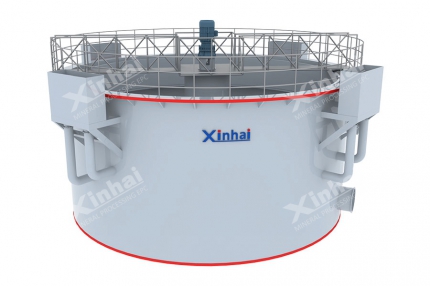The Mine and Mineral Act (1995) - which greatly simplified licensing procedures, places minimum reasonable constraints on prospecting and mining activities, and creates a very favorable investment environment, whilst allowing for International arbitration to be written into development agreements, should this be deemed necessary.
A framework for responsible development has also been created through publication of the Environmental Protection and Pollution Control Regulations.
Licensing System
Three types of license are available to the large-scale operator:
• Prospecting License - this confers the right to prospect for any mineral over any size of area for a period of 2 years renewable.
• Retention License - this confers the right to retain an area subject to the Ministers agreement, over which feasibility studies have been completed but market conditions are unfavorable for development of a deposit at that time. Size of area may be that covered by a prospecting license or smaller area as redefined by the License holder.
• Large Scale Mining License - this confers exclusive rights to carry out mining operations and other acts reasonably incidental thereto in the area for a maximum of 25 years. The area to be held should not exceed the area required to carry out the proposed mining operations. Applications need to be accompanied by environmental protection plans and by proposals for the employment and training of citizens of Zambia.
Similar rights are available to smaller operators, but on a reduced scale
• Prospecting Permits - relate to areas of 10km² and have a duration of 2 years non-renewable.
• Small Scale Mining License - relate to areas not exceeding 400 3hectares and have a duration of 10 years renewable.
• Artisans Mining Rights - give the right to local people to mine on an artisanal basis in an area not exceeding 5 hectares, for a period of 2 years non-renewable.
• Gemstone License - holders may carry mining operations over an area, not exceeding 400 hectares for a period of not more than 10 years
Environment Framework
Key steps in establishing a project as laid down by the regulations:
• Preparation of a project brief to the Director of Mines Safety describing the site, proposed activities and all aspect of potential environmental impact.
• The Director may request more information or can forward the brief to the Environmental Council of Zambia recommending one of: rejection; acceptance after submission of a full Environmental Impact Statement; the project be accepted and be allowed to proceed immediately.
• Preparation of an Environmental Impact Statement and submission to the Director of Mines Safety.
• The Director of mines Safety submits his recommendations to the environmental Council which makes the final decision
• Environmental Impact Statements, if called for, to be updated annually or within fifteen months of the first statement.
• Environmental audits of project to be completed annually.
• If a developer finds the provisions of any regulation unduly onerous, he may apply to the Minister or Director of Mines Safety for an exemption from that regulation. The exemption may be granted under prescribed conditions.
• Developers of large scale mining projects to contribute to the environmental Management Fund for rehabilitation purposes.
A framework for responsible development has also been created through publication of the Environmental Protection and Pollution Control Regulations.
Licensing System
Three types of license are available to the large-scale operator:
• Prospecting License - this confers the right to prospect for any mineral over any size of area for a period of 2 years renewable.
• Retention License - this confers the right to retain an area subject to the Ministers agreement, over which feasibility studies have been completed but market conditions are unfavorable for development of a deposit at that time. Size of area may be that covered by a prospecting license or smaller area as redefined by the License holder.
• Large Scale Mining License - this confers exclusive rights to carry out mining operations and other acts reasonably incidental thereto in the area for a maximum of 25 years. The area to be held should not exceed the area required to carry out the proposed mining operations. Applications need to be accompanied by environmental protection plans and by proposals for the employment and training of citizens of Zambia.
Similar rights are available to smaller operators, but on a reduced scale
• Prospecting Permits - relate to areas of 10km² and have a duration of 2 years non-renewable.
• Small Scale Mining License - relate to areas not exceeding 400 3hectares and have a duration of 10 years renewable.
• Artisans Mining Rights - give the right to local people to mine on an artisanal basis in an area not exceeding 5 hectares, for a period of 2 years non-renewable.
• Gemstone License - holders may carry mining operations over an area, not exceeding 400 hectares for a period of not more than 10 years
Environment Framework
Key steps in establishing a project as laid down by the regulations:
• Preparation of a project brief to the Director of Mines Safety describing the site, proposed activities and all aspect of potential environmental impact.
• The Director may request more information or can forward the brief to the Environmental Council of Zambia recommending one of: rejection; acceptance after submission of a full Environmental Impact Statement; the project be accepted and be allowed to proceed immediately.
• Preparation of an Environmental Impact Statement and submission to the Director of Mines Safety.
• The Director of mines Safety submits his recommendations to the environmental Council which makes the final decision
• Environmental Impact Statements, if called for, to be updated annually or within fifteen months of the first statement.
• Environmental audits of project to be completed annually.
• If a developer finds the provisions of any regulation unduly onerous, he may apply to the Minister or Director of Mines Safety for an exemption from that regulation. The exemption may be granted under prescribed conditions.
• Developers of large scale mining projects to contribute to the environmental Management Fund for rehabilitation purposes.


 marketing@ytxinhai.com
marketing@ytxinhai.com  0086 13810327080
0086 13810327080 






































































































 CHAT
CHAT MESSAGE
MESSAGE

